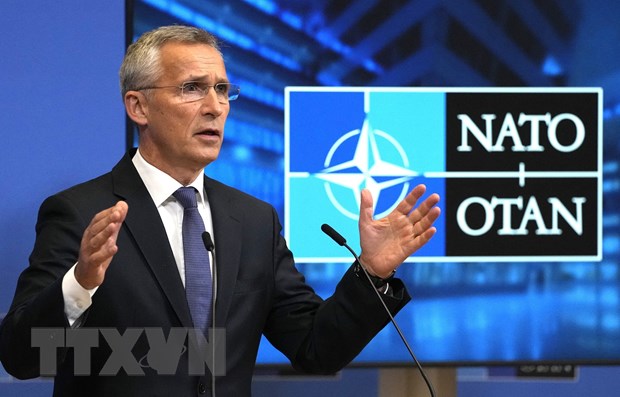NATO's new ambition
Going global and having a stand in the Indopacific, NATO would have one other explanation to justify its further existence in today's world.
While being preoccupied with the war in Ukraine and having to deal with the most serious security crisis it has ever faced in Europe, NATO continues to look for a bigger role and broader manoeuvering rooms in world policy. NATO's newest move was to win new strategic partners in the Indo-Pacific. That was why NATO's General Secretary Jens Stoltenberg traveled to South Korea and Japan.
| NATO's General Secretary Jens Stoltenberg. Source: AFP/VNA |
Until now, NATO has been only present and engaged in Europe. Last summer, NATO approved a new Strategic Concept laying out its priorities for the next decade. In this new blueprint, NATO has considered China as one of its strategic priorities for the first time, saying China's ambitions and its “coercive policies” challenge the Western bloc’s “interests, security and values” and described it as "systemic challenges" to NATO. To successfully deal with challenges originating from Russia, China, and North Korea, NATO must be directly present and effectively operate not only in Europe but everywhere in the world, and of course in the Indo-Pacific region. The most proper gates in this region are South Korea and Japan because both are strategic and traditional military allies of the US which is the major and leading member within NATO.
By building closer ties with these countries, NATO could enhance its strategic interests in the region. Its cooperation with these countries would help them counter threats caused by Russia, China, and North Korea, thus opening ways and chances to get important roles and influences on regional and global security. NATO wants to be and to go global, therefore needs to build a global network of partners and allies. The Indo-Pacific region has been considered worldwide as the region determining and deciding the future of the world. That is why NATO has to give this region its top strategic priority, behind only Europe and has to start the sooner the better trying to enter into and conquer this region even when it is still bogged down with its indirect engagements in the present Ukraine war without knowing when and how it would and could come to an end.
It is also NATO's ambition to defend the interests of its members outside Europe, thus consolidating its importance to its members. Many of its members see already their future in the Indo-Pacific region. Going global and having a stand in the Indopacific, NATO would have one other explanation to justify its further existence in today's world. For NATO's new ambition, South Korea and Japan would be its ideal partners.
Disclaimer: The views expressed by Ambassador Tran Duc Mau are his own and do not necessarily reflect the opinions of The Hanoi Times.










